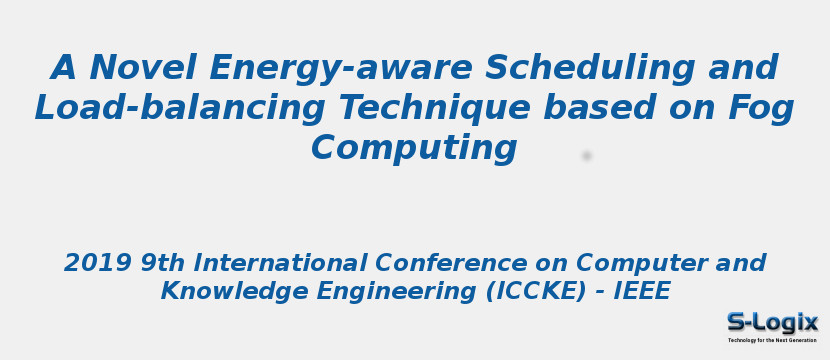Research Area: Fog Computing
Considering the development of modern information technology, the emergence of fog computing has gained equipment computing power and supplied new solutions for modern traditional industrial applications. Generally, providing communication among devices in smart factories structure is one of the most controversial issues. Since reciprocating lots of messages among existent various tools and intelligent agents is required in the smart factories, and the connections are naturally wireless, they will not have much to offer. If the intelligent agents tend to use broadcasting in sending their messages, the process will be costly with little outcome. Hence, in this paper, an effective solution is presented to gain optimum connections among these elements, while considering the complex issues on energy consumption, network efficiency, traffic, and latency in the exchange of messages. The proposed method is a scheduling awareness of the communicative fog while focusing on complicated energy consumption problems of manufacturing clusters. In the proposed algorithm, four criteria are considered: energy, dynamic threshold, waiting time of tasks, and communication delay among smart factors. These criteria are divided into two categories. The criteria according to which two scheduling and load adjusting procedures are performed depend on the user-s opinion. The results of the experiments show that the workload in the proposed method is more balanced than the base method in the robot. This load balancing has reduced the amount of workload in each robot, which reduces the waiting time for each product to be packaged. Also, the amount of communication in the network in the proposed method has decreased about 63% compared to ELBS.
Keywords:
Internet of things
Fog computing
Load balancing
Scheduling
Energy
Smart factory
Author(s) Name: Ahmad Alzeyadi; Nazbanoo Farzaneh
Journal name:
Conferrence name: 2019 9th International Conference on Computer and Knowledge Engineering (ICCKE)
Publisher name: IEEE
DOI: 10.1109/ICCKE48569.2019.8964946
Volume Information:
